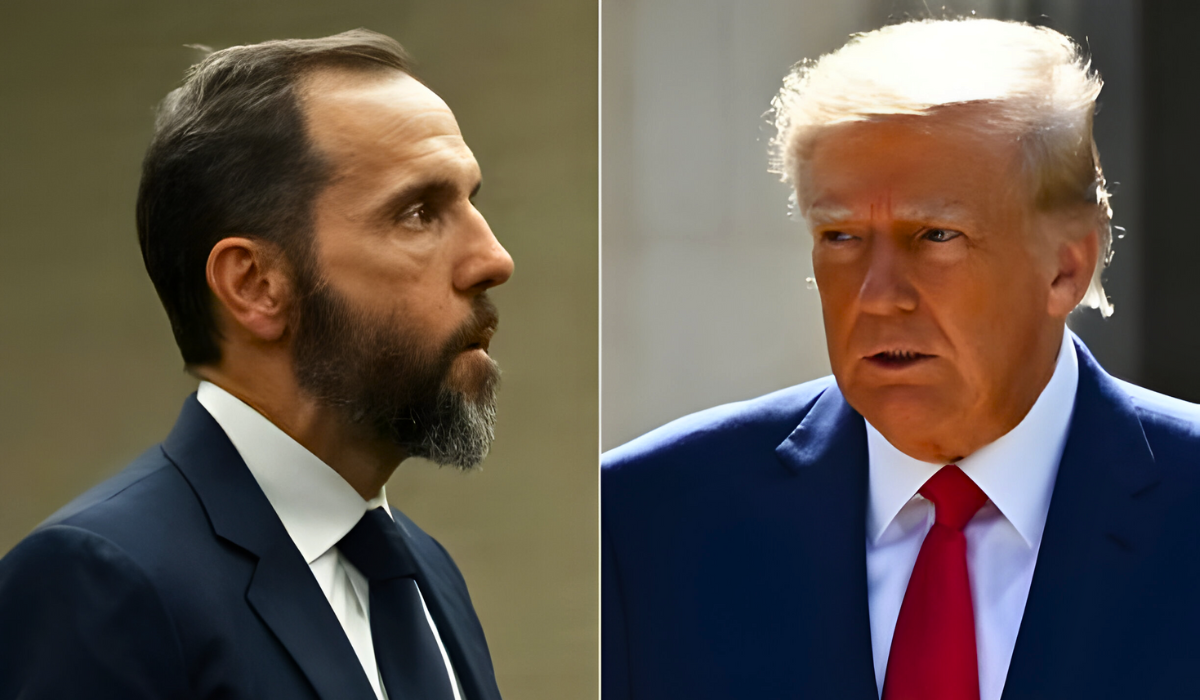As Donald Trump continues to face federal charges related to his alleged interference in the 2020 presidential election, the legal landscape surrounding the case has become even more complex. Recently, Department of Justice (DOJ) special counsel Jack Smith hinted at “new evidence” in a joint filing, which has caught the attention of legal analysts, particularly Glenn Kirschner. The former president’s legal team is preparing for what could be a prolonged legal battle, while prosecutors push for a faster timeline. This latest development suggests that more details about Trump’s actions may soon come to light.
Trump’s Election Interference Case: The Key Charges
Donald Trump, the current Republican front-runner for the 2024 presidential nomination, is facing four federal charges in relation to his alleged attempts to overturn the results of the 2020 election. The charges include conspiracy to defraud the United States, conspiracy to obstruct an official proceeding, attempting to obstruct an official proceeding, and conspiracy against rights. Despite pleading not guilty to all charges, Trump has repeatedly claimed that the case against him is politically motivated and part of a larger effort to derail his presidential ambitions.

These charges are based on the former president’s role in spreading false claims about widespread voter fraud, despite the lack of substantial evidence to support these allegations. Trump’s efforts to halt the certification of Joe Biden’s victory led to his involvement in various post-election schemes, including the infamous January 6 rally in Washington, D.C., followed by the storming of the U.S. Capitol.
Jack Smith’s Legal Strategy: New Evidence Hinted
Jack Smith, the DOJ special counsel, has been leading the prosecution’s charge in the case. In a recent joint filing, Smith hinted that new evidence could be introduced during the trial, shedding more light on Trump’s actions during and after the 2020 election. According to legal analyst Glenn Kirschner, who discussed the matter on MSNBC, Smith’s revised indictment suggests that there is more information yet to be unveiled.
Kirschner explained that while much of Trump’s conduct has already been outlined in the original and revised indictments, the filing includes a key line in which Smith indicated that additional information about Trump’s actions would be revealed. This new evidence could potentially impact the legal arguments regarding whether Trump’s behavior constituted official actions as president or private actions as a candidate attempting to overturn the election results.
Kirschner emphasized that this distinction is critical to the case, as Trump’s legal team is arguing that his actions were part of his official duties as president, which would grant him immunity from prosecution. However, Smith and his team argue that many of Trump’s actions, particularly those related to overturning the election, were done in his capacity as a private citizen and political candidate, thus making him vulnerable to prosecution.
The Battle Over Immunity And Trial Timing
The question of presidential immunity has emerged as a central issue in the case. Earlier this year, the U.S. Supreme Court ruled that while presidents enjoy immunity for official acts, this protection does not extend to actions taken as a private citizen or candidate. Trump’s lawyers argue that his attempts to challenge the election results were official acts, meaning he should be immune from prosecution. In contrast, Smith and his team assert that these were private actions, leaving Trump open to the charges brought against him.
In addition to the legal debate over immunity, there has been a growing conflict over the timing of the trial. Trump’s legal team has been pushing for delays, suggesting that any additional proceedings take place as late as 2025, well after the 2024 presidential election. They hope to postpone key hearings, such as those related to the motion to dismiss the case, until the end of 2024 or early 2025.
Smith, on the other hand, has made it clear that he is ready to proceed with the case as soon as the court deems appropriate. In his filing, he emphasized that the trial should move forward without unnecessary delays. Kirschner speculates that Trump’s lawyers are keen to delay the case as much as possible, as they likely do not want new evidence to emerge before the election.
Implications for Trump’s Legal Future
As the trial progresses, the introduction of new evidence could significantly influence the outcome of the case. While Trump remains a powerful figure in the Republican Party and the leading candidate for the GOP presidential nomination, the growing legal challenges could weigh heavily on his campaign.
The tension between Trump’s defense team and the prosecution over trial timing, immunity, and the introduction of evidence indicates that the case will likely play a major role in shaping the political landscape in the months leading up to the 2024 election. For now, the focus remains on when and how this new evidence will be introduced, as both sides continue to prepare for what promises to be a landmark trial.

